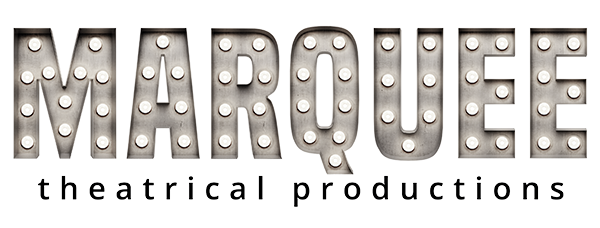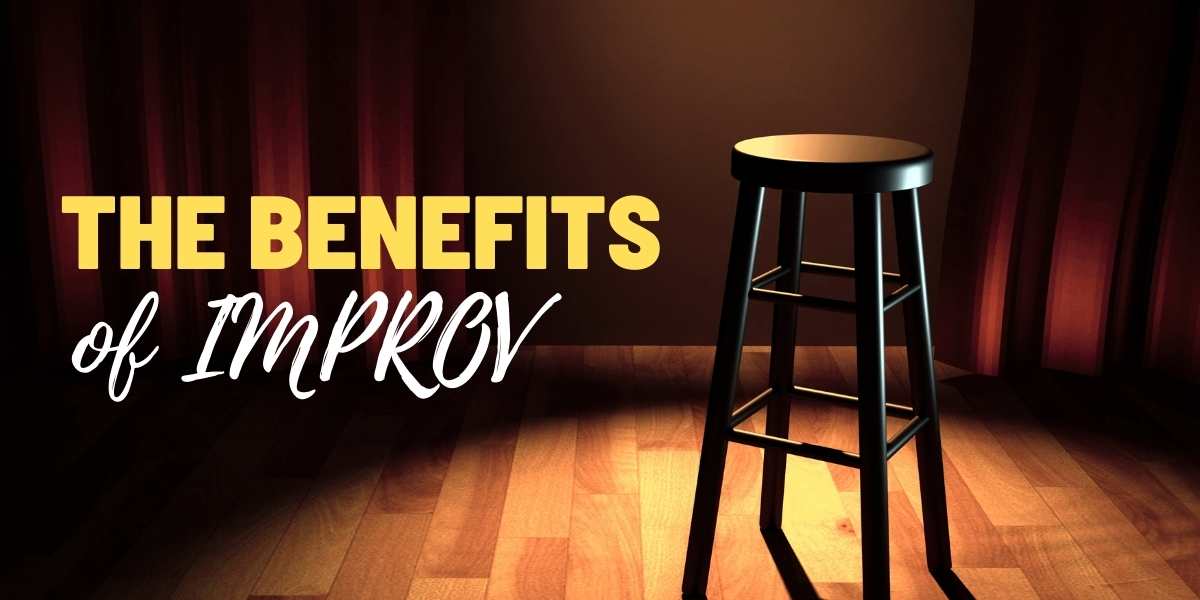Some of the most iconic show and movie moments have happened because something went unexpectedly. Because the artists were equipped with an extremely powerful, and crucial skill: improv.
In the arts, those unforeseen circumstances we are faced with are usually how the best, and most magical moments are born. And that’s true in real life too.
Practicing improv is an amazing way to build skills that will benefit us, on and off stage.
*Disclaimer: All of the opinions and content presented in this post are not professional advice and are true to the best of the author’s knowledge. This post is meant for inspirational and entertainment purposes only.*
So what happens to our brains when we improvise?
When we are forced to improvise, we are automatically put in a place of uncertainty and discomfort where our brains will start to naturally work to resolve the conflict, be imaginative and grow.
Through studies with Jazz musicians, it was shown that once we enter this brain-space of improvising, the use of our dorsolateral prefrontal cortex is decreased. This is the part of the brain with that voice that tells us we’re not good enough, that we should give up – you know, that lovely inner-critic we all have.
Meanwhile, the other part of our brain that is responsible for language and creativity is activated.
What happens during improv is our inner-critic is quieted, and we instead start focusing on the scene, the music, the people around us and the act of making the scene work.
When we really get into it, we can also enter a state of flow. Being in the flow state allows us to be so present and focused on something that it can feel as though everything else in the world just ceases to exist.
We become completely engrossed in the task, get filled with lots of feel-good hormones – especially if what happens during the improv is comical – and over time, we can develop some great, invaluable life skills.
What are the benefits?
Deeper Understanding of the Story
We’re all storytellers. And using improv exercises can be a great tool to deepen your understanding of that story and emotion you’re trying to convey. In performances, it allows you to be more authentic, and if someone forgets a note or a line, you have the necessary understanding to help you keep going.
A great exercise is to learn your scene, then play it out again with your counterpart. But this time, only do it in your own words based on your understanding of the story. You might learn something new about your character or performance that you never knew was there.
Conflict Resolution
Whether it’s in our everyday lives or on stage, improv helps build conflict resolution skills that can help us surmount any obstacle that comes our way. Whether your car breaks down before work or your prop breaks on stage, improv helps us learn how to take those tough situations, and pivot to make them work.
Normalizes failure
Regardless of what we do in life or on stage, we are going to make mistakes. And practicing improv is a great way of creating a safe space to mess up and learn what does and does not work. That way when we fall down, we have the tools to help pick ourselves back up.
Jennifer Kolari, a Toronto-based therapist mentioned in an interview with CBC how she uses improv techniques in her work with family and kids. She says that improv is a place where “kids can just have fun and learn similar important skills without it being focused on their deficits.”
It allows being rewarded for mistakes and taking risks, rather than punished.
Embracing the Unknown
We are going to encounter the unknown, and the best way to deal with it is to get used to it.
We aren’t always going to have the answers, be able to predict circumstances or foresee the outcome of conversations. Improv allows us to let go of expectations of what is out of our hands, and rather pushes us to focus on what is in our control. This skill can help reduce a lot of stress and anxiety when it comes to social situations or taking big risks and can overall free up our ability to be immersed in the story when we perform on stage.
Being present
You have to be present to make a scene work on stage. If you lose focus and miss someone’s line or cue, your story becomes fragmented. Improv forces us to practice this skill of being in the moment since everything you or your counterparts do is made up on the spot. This skill can significantly help if you’re one to always worry about the future and the past. It helps remind us that the only thing we have, and the only thing that matters is what’s right here in front of us. Especially when performing, this skill allows us to catch opportunities for innovation that we might otherwise miss. It helps us give a deeper, more emotional and authentic version of ourselves to the audience.
Listening.
Improv forces us to listen. To be patient and attentive to those around us. By not having a script to reference, we need to pay attention to the words and actions of those around us to keep the story going. This skill can further help us guide real conversations in work, life and relationships. When we are conversing with people or when things go wrong, improv helps build the skill of acknowledging other people’s feelings and words, and allows us the skill to build off of what they say. It helps us understand others better and build connections.
Connection
Improv can do wonders to strengthen connections and bonds. It allows us to understand those around us better and acknowledge individuality. It shows us that even though not everybody thinks the same way we do, we can still work with them to create something great. Improv forces us to go out and connect with new people to solve a challenge. It teaches us to notice cues and emotions that can help us build social skills and empathy. When we improvise with others, we are working together to build something from nothing. We are forgetting about our own individual performance, and instead, we’re considering how to best support each other by positively building on ideas to and achieve a common goal.
Communication and Social skills
Communication and social skills are important for anything we do in life. Improv forces us to practice clear communication, getting ideas across and putting thoughts into words; and doing so in a way that’s quick, effective and makes sense to the story. Especially with children, using improv to develop conversational, social skills can be very effective.
“Improv really helps children with timing, learning the fine line between what’s funny and what’s too silly or what’s funny and what’s mean, but learning about it in a safe, nonjudgmental environment.”
Many professional actors have expressed the positive impact that improv had on them when they were growing up. Kim’s Convenience actor, Andrew Phung, said:
“I was an awkward teenage kid who didn’t really know how to fit in or speak up. Improv helped me figure out who I was, which in turn gave me the confidence to speak up, perform, and just talk to people around me.”
Improv is very conversational and natural. It forces us to speak up and make decisions, ultimately allowing us to build confidence and practice that habit of pulling from our experiences to carry conversations forward.
Supports Mental Wellness
Improv, like any other creative practice, has the ability to lighten up our day, bring us joy and give us healthy doses of feel-good hormones. But it’s also been proven through studies that improv can be very effective in reducing anxiety and depression. The results also showed it could be used to ease the common perfectionist mentality that many artists struggle from.
And if all of that doesn’t make you want to join an improv class – I don’t know what will!
So come join a theatre class at Marquee, join an improv class, play improv games with friends or start a group of your own! The best part of it is you don’t even have to be an actor to practice improv. It’s an amazing, accessible opportunity for everybody and anybody of all ages to get out of their heads, practice building helpful life skills and just have some fun.
RESEARCH
https://www.barrowgroup.org/29226-2/improv-activities/
https://www.tandfonline.com/doi/abs/10.1080/09638237.2017.1340629?journalCode=ijmh20&


0 Comments